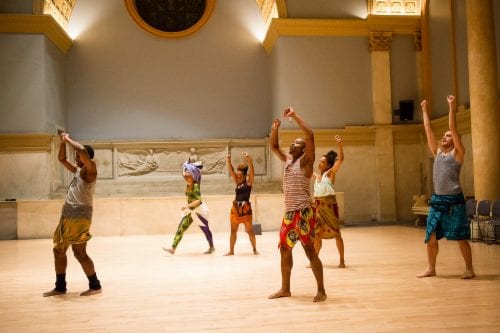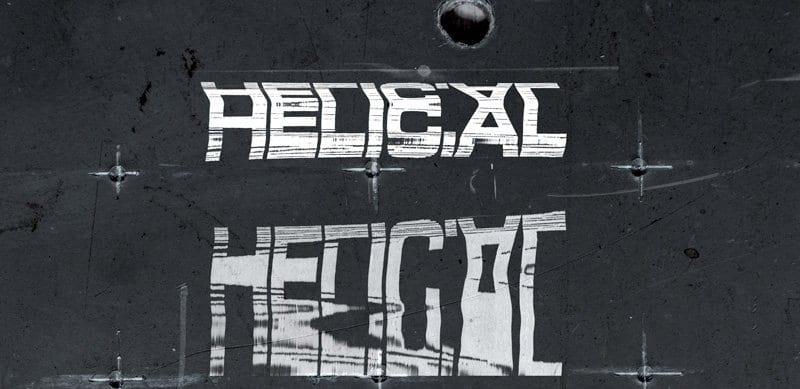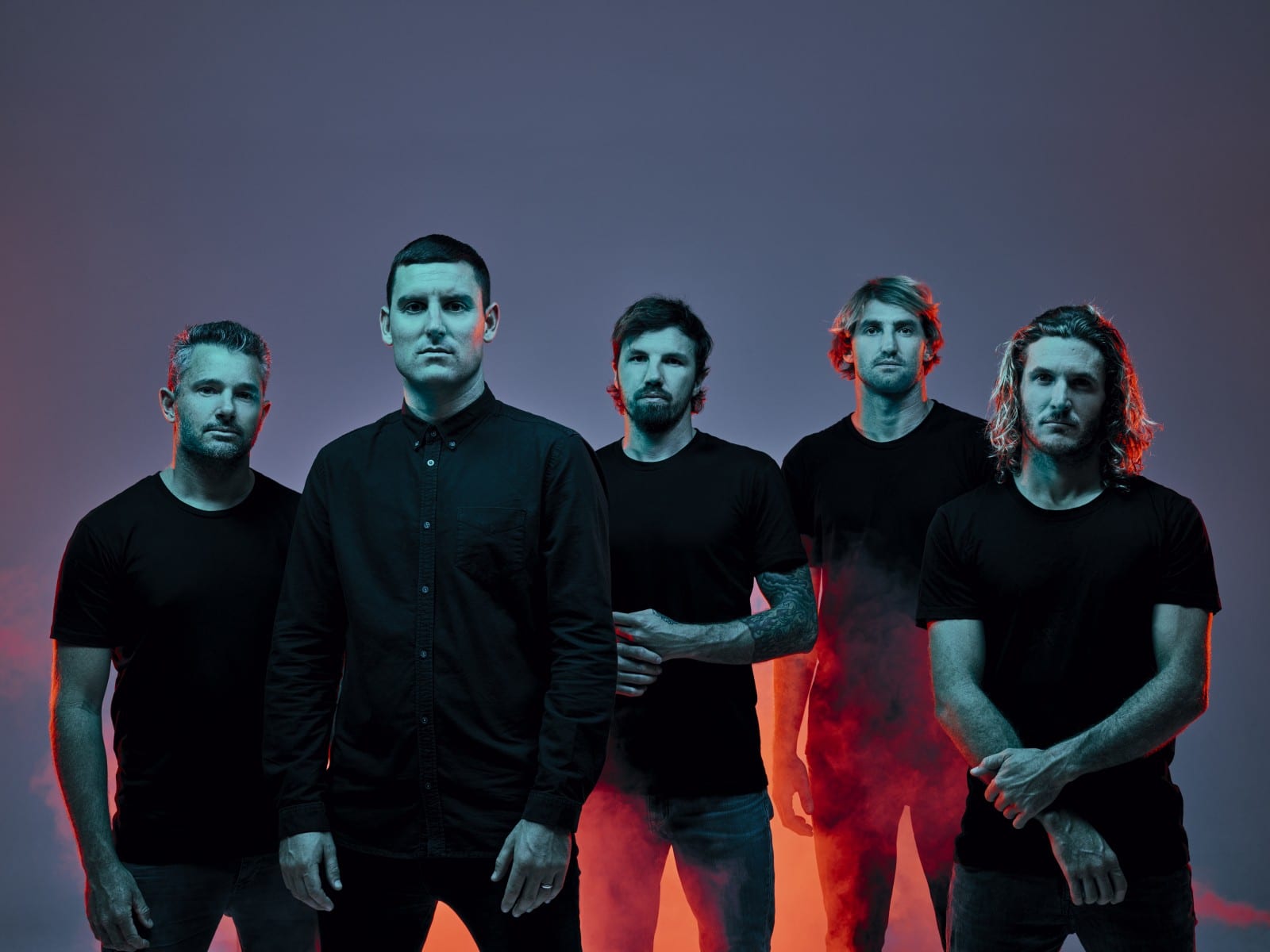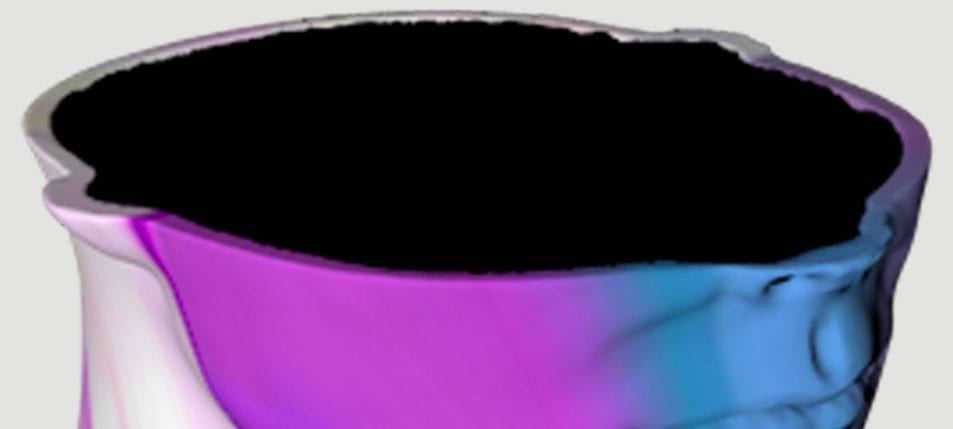
Knockdown Center hosts Movement Research Artists of Color Council Spring Fundraiser Party! Join Movement Research Artists of Color Council (AoCC) in celebrating Spring with food, drinks, and pop up performances at their fundraiser! Come celebrate, support, build, kick back and dance!
About the Artists of Color Council:
A cohort of artists of color addressing cultural diversity, equity, and sustainable structural integration in MR’s operations, programming, outreach, and throughout its extended communities. The council aspires to increase visibility, opportunities, and engagement with resources for artists of color within the field.
@artistsofcolorcouncil
#artistsofcolorcouncil
This program is supported by Open Capacity, Knockdown Center’s Space Support Program for artists and organizers producing projects that align with KDC’s mission. Learn more at: https://knockdown.center/proposals/

Knockdown Center hosts the Trans is Magick! Collective to present the first annual Trans Day of Joy! Join us for a day celebrating and claiming Trans liberation through celebration.
The 1st annual Trans Day of Joy #TDoJ is a statement is meant to be both celebratory and political. The larger gay/LGB/queer movement has pushed Trans people to the margins, as they exchange Trans liberation for assimilation into the cis hetero capitalist world. During Pride week we see a flurry of lesbian,
gay, and bisexual representation in the movement and throughout the Pride party scene, at the cost of Trans visibility. Trans bodies are erased, ignored & commodified. On June 23rd, we will show up to celebrate our survival as resistance, as community, as JOY.
Our Trans ancestors, most famously Sylvia Rivera & Marsha P. Johnson, were disowned from the gay movement because they were considered to hinder the progress of gay rights. For centuries, Trans people have dealt with the aftermath of being left behind from our LGB kin. The Trans is Magick! Art Collective centers Trans joy as a path to liberation. We believe there can be no pride unless Trans people of all races, genders, and bodies are celebrated. So bring your friends, your lovers, & [chosen] family to Knockdown Center to claim space in community!
#TransDayofJoy #TDOJ #TDOJ2018
Schedule:
2pm-8pm: Trans PoC Vendors Market
2pm – 5pm: Workshops lead by Trans folx
5pm sharp: Trans for Trans Speed Dating
6pm-8pm: Live Performances by Trans folx
Admission is income based, sliding scale: $10-$40
If you make:…….Please Pay:
$20k or less…….$5-$10
$20K-$30K……….$10-$15
$30-$40K………..$15-$25
$40K or above……$25-40
No one trans person or ally will be refused admission due to lack of $$$. Though this event is sliding scale, we ask that if you have the funds to spend $$ do it! Ticket sales from this event literally fund Trans survival! Every Trans is Magick! workshop teacher, performer and organizer is compensated based upon ticket sales and donations.
All genders are welcomed (cis-gender allies included!) but we ask you be mindful of using gender specific language at our event. Please do not assume anyone’s gender and be mindful of the space you take up.
Trans folx, bring your friends, your lovers, & [chosen] family!
We’ll have a community altar to honor our Trans ancestors through time. If you feel called, please bring items to add to our the altar. Items such as food offerings, flowers, drink, candles, crystals, photos, keepsakes can be placed on the altar.
#TDOJ #TDOJ2018
Accessibility:
KNOCKDOWN CENTER IS FULLY WHEELCHAIR ACCESSIBLE. If you have questions or specific
accessibility needs, please email us at TransisMagick@gmail.com
Age Restrictions:
The event is all ages before 9:00pm and 21+ after. Visitors may be asked to present valid government issued photo identification.
How to get to Knockdown Center:
Knockdown Center
52-19 Flushing Ave
Queens, NY 11378
Subway: L Train to Jefferson, 15 min walk from there
Bus: B57, B38, Q59, Q54
Join our Free Carpool Sign-Up:
https://www.groupcarpool.com/t/x20ome


On 21 May 1993. the first ele_mental event at an Ohio State University parking garage, launched the careers of many midwestern electronic musicians; from Dieselboy, Archetyp, Todd Sines & Titonton. Their next event, Comfort, with almost a thousand attendees, crystallized their long-standing association with Detroit’s own Jon Santos, Brian Gillespie, Claude Young Jr. / Claude Young, Anthony Shakir, Mack Goudy Jr., and by nature, Daniel Bell, Carl Craig, UNDERGROUND RESISTANCE and more.
ele_mental’s core has consistently challenged the notion of art, movement, and music, with their active_not_passive ambient series, ele_ment series of live concerts with influencers and the influenced, FIREXIT, a collaboration with Matt Clausen & Daniel McMahon: bringing The Rapture, Mouse on Mars, Tortoise’s Chicago Underground Duo, OVAL, Robert Henke’s Monolake project, and Stefan Betke as POLE.
After their moves to NYC, Charles and Todd continued to push into new territory, with the launch of their band, INTERVAL featuring close friend Andries Boekelman; in their quest for the right fit for a label, they launched HELIC.AL, a response to creating long-last artifacts of pure analog / physical recordings; and their new projects Artefactos De Dolor with Beyond Booking (The Bunker)’s Alyssa Barrera / LDY OSC, and VerticalSilence, a new post-punk project from Charles Noel.
As HELIC.AL explores new dimensions in form, space, and sound, they make a concerted effort to connect with the sounds of yesterday as they still infer the sounds of tomorrow. We honorably welcome the performance of Gordon Sharp [ex- The Freeze, This Mortal Coil, Cocteau Twins] as Cindytalk, whose haunting, chilling, gender-fluid voice has been the soundtrack for many of us for over 30 years.
Eric Random has had an equally influential position in the annals of industrial music, having recorded with Cabaret Voltaire Official’s Stephen Mallinder & Richard H Kirk as The Pressure Company, Nico as The Faction, The Tiller Boys, in addition to his own unique, angular psych dub / funk under the Eric Random umbrella. With re-releases due on Dark Entries Records, SLEEPERS RECORDS, and forthcoming studio time with Todd + Charles of HELIC.AL, Eric’s well on his way to making more sonic memories.
Veronica Vasicka re-opened the doors for Danny Bosten as Das Ding, a Dutch graphic designer / bedroom synth-producer whose riveting performance with Sean Mcbride at one of Wierd Records’s final nights left a huge dent in the developing tones of HELIC.AL. From “H.S.T.A.” to “sad but true” the Das Ding sound is perfection its effortless, minimal synth charm. Danny now has revitalized his Das Ding project replete with his own modular rig and dozens of tracks on the horizon
*LINEUP*
live
Cindytalk
of This Mortal Coil, Cocteau Twins, The Freeze, Bambule
4AD, Editions Mego, Midnight Music, Praxis
DEBUT US APPEARANCE:
Eric Random
Nico + The Faction, Cabaret Voltaire Official, The Tiller Boys, The Pressure Company
Mute Records, Les Disques du Crépuscule, DoubleVision, LTM Recordings, New Hormones / Factory Records & Ex Factory Records Bands/Groups/Artists Etc, Dark Entries Records
Das Ding aka Danny Bosten
Tear Apart Tapes, Minimal Wave
Artefactos De Dolor
VerticalSilence
INTERVAL
art / projection / installation
Egill Kalevi Karlsson
Andries Boekelman
Todd Sines

***
Citi® Cardmember Preferred Tickets:
Friday, May 18 10AM EST
Public On-Sale:
Friday, May 18 10AM EST
***
| PRESALES |
Citi® Cardmember Presale:
Tuesday, May 15 12PM EST – Thursday, May 17 10PM EST
Live Nation Presale:
Wednesday, May 16 10AM EST – Thursday, May 17 10PM EST
Live Nation Mobile App Presale:
Wednesday, May 16 10AM EST – Thursday, May 17 10PM EST
Ticketmaster Presale:
Wednesday, May 16 10AM EST – Thursday, May 17 10PM EST
Venue Presale:
Wednesday, May 16 10AM EST – Thursday, May 17 10PM EST
**Sign up for Knockdown Center’s mailing list to receive the venue pre-sale password: www.knockdown.center

NYC’s best Halloween Party has outdone itself yet again! An NYC Halloween tradition since 2006, a multimedia mutli-room dance party in a sprawling haunted house!
***
Tonight is the Night Of The Vampire! On Wednesday, October 31 we celebrate the 13th edition of Jonathan Toubin / New York Night Train‘s Haunted Hop Halloween Spooktacular with the legendary 13th Floor Elevators frontman, one of the most exciting and distinctive voices in rock’n’roll history, Thee Evil One himself, Roky Erickson! As per usual expect a labyrinth of cob-webbed rooms chock full o’live music, dancing, horror cinema, performance, art, food, drinks, and more!
Don’t snooze on securing your spot to witness the collision of the world’s best Halloween party with the world’s best horror musician! A night you will definitely never forget! $20 EARLY BIRD TICKETS AVAILABLE NOW!
**Join the New York Night Train mailing list for info on more parties like these:
MailingList (at) NewYorkNightTrain.com

ITINERANT Performance Art Festival NYC Closing Event featuring artists: Concha Vidal, Carl Lawrence, Angeli, and Steven Pestana.
As a part of
ITINERANT Performance Art Festival NYC
May 17 – 25, 2018
Knockdown Center hosts the final performance event of ITINERANT Performance Art Festival NYC, an annual festival that invites the public to a week of Live Action Art in the five boroughs across New York City with performances by international artists Concha Vidal (Spain), Carl Lawrence (United States), Angeli (United States), and Steven Pestana (Colombia / United States).
The five-borough festival will take place from Thursday, May 17th to Friday, May 25th, 2018. This year’s program focuses on works that explore, treat, and propose new alternatives to binary constructions regarding gender, nationality, identity, religion and/or ideological structures. Departing from the current socio-politico-economic transformations around the globe, and the questioning of habitual norms about race, gender, sexuality, and origin, ITINERANT 2018 features performance art works by local, national and international artists coming from Europe, Latin America, Asia, and North America.
ITINERANT 2018 kicks off its 8th edition with the exhibition “Entanglements” on Thursday, May 17th, at the artist-run space EOArts in Bushwick, and opens its performance program on Friday, May 18th at Last Frontier NYC in Greenpoint. The week-long festival dedicated to Performance Art will be hosted by the following institutions: QUEENS MUSEUM (Saturday, May 19th), STATEN ISLAND ARTS (Sunday, May 20th), BRONX ACADEMY OF ARTS AND DANCE, BAAD (Tuesday, May 22nd), SMACK MELLON in Brooklyn (Wednesday, May 23rd, and BMCC Tribeca in Manhattan (May 24th). In addition, the festival hill host the artists symposium “Bodies that Matter” at La Guardia Community College in Long Island City (May 20th), and public Interventions at the historical Flushing Meadows Corona Park inQueens (Saturday, May 19th).
About the artists:
Concha Vidal (Spain) has a degree in Psychology and a doctorate in Fine Arts at the University of Barcelona. She now works as a performer and video artist after a long career as a painter and an art residence at University and Cooper Union and SVA (NYC). She has been performing in Switzerland, Croatia, Spain and NYC. Her performances are an interdisciplinary confluence of theatre, dance and video art. With a very personal language, Concha weaves a new iconography in her poetic actions while recovering the spirit of the 60´s. Retaking the theme of woman, body and landscape from a fresh perspective, a view sometimes uncomfortable. Among her notable performances are: 2013: “Unconventional you“ Macceleria D’arte Gallery.Sant Gallen.Switzerland; 2014: “The last dance” Festival Palma amb la dansa. Palma de Mallorca .Spain; “Strange fruit” Festival Dansa Novembre. Es Baluard. Palma de Mallorca. Spain. “The last dance”.Galeria Xavier Fiol. Palma Brunch; 2015: Performance “The weight of my blood”.Verchio. Switzerland; “The last dance”at Dance Week Festival. Zagreb, Croatia Performance “Sun on set” en col.laboració amb el Museu es Baluard; 2016: “Stormy Red” a Festival Inundart .Girona. Catalunya; “The weight of my blood” Territori Festival, Teatro Sociale. Bellinzona. Suïssa; “I.O.D(Internet Obsessive Disorder)”.Festival Teatro Fira B. Mallorca. Baleares; 2017 Performance “Sur de sal”.Teatre Principal. I.O.D Teatre Sa Màniga.Cala Millor.Mallorca; Trasatlántico Festival. with “Stormy Red”Uruguay and Argentina. Insolit Festival with 1 Michellin star Chef Andreu Genestra. Mallorca .Spain. 2018Art Hybrid Festival with “Wet”.Madrid.Spain.
Carl Lawrence (United States) is a Seattle-based artist and director whose work oscillates between performance, installation, and visual art. His work has been seen most notably with Seattle-based experimental theatre company Modern Recollections with whom he has presented work locally and nationally at venues such as The Watermill Center, On The Boards, Center on Contemporary Art (CoCA), Olson Kundig, Yellow Fish Epic Durational Performance Festival XIV, festival:festival 2017, and Next Fest NW 2014. Lawrence’s work has garnered the attention of internationally-acclaimed artist Robert Wilson who invited him to present an installation at the Watermill Center in 2014 for his gala “Devil’s Heaven,” which received accolades from Bill Cunningham and the New York Times, Marina Abramovic, Lady Gaga, and Jacques Reynaud. His work has also been praised locally in publications such as City Arts Magazine, Vanguard Seattle, Seattle Dances, and The Stranger. He is currently developing a new play entitled “aaaa” that will premiere at Base: Experimental Arts + Space in November 2018 in Seattle, WA.
Angeli (United States) is an artist whose performance works access the body as thinking form, connect to psychic currents, and move with other nonhuman forces. Her practice attends to embodied transformation and moves toward the more than human. Her work has been performed in New York, Portland, Marfa and NW Arkansas, often researching place as a framework to shape memory. She received a MA in Performance Studies from Tisch School of the Arts, New York University ’12 and a BFA from Parsons ’11 in a self-directed program formed at the edges of fields and positioned to create new systems. As a performance artist, she is writing the fiction of her persona as a processual rehearsal of another way of thinking-recognizing.
Steven Pestana (Colombia / United States) is a multidisciplinary artist living and working in Brooklyn, NY. He earned his BA in Art History from New York University and his MFA in Digital Media from Rhode Island School of Design. He has participated in numerous solo and group shows and previously exhibited at Spring/Break Art Show, Satellite Art Show, BRIC, Momenta, Invisible Exports, Grin Providence, Rhode Island College, and Boston Center for the Arts. He was the recipient of a 2015 Puffin Foundation Grant for Fine Arts, a 2018 Scholarship from Urbanglass, and has attended residencies at Vermont Studio Center, Mass MoCA, Santa Fe Art Institute, Catwalk, and CalArt’s inaugural Summer Residency. His work has also appeared in publications such as Hyperallergic, Artsy.net, and The Boston Globe. When not making art, Steven Pestana indulges his love of writing as a contributor to the Brooklyn Rail. Pestana performs with Sophia Sobers.
About the Festival:
ITINERANT was created in 2010 by interdisciplinary artist Hector Canonge. The initiative was a small platform for Contemporary Performance Art, and had its origins in the monthly series A-Lab Forum that Canonge organized at Crossing Art Gallery in Flushing, Queens. Following the growing interest in Live Art, and the need to present performance programs in the borough, ITINERANT was launched in 2011 under the auspices of QMAD, Queens Media Arts Development. In 2012, ITINERANT was recognized by the City of New York as the first Performance Art festival taking place in the five boroughs that make the metropolitan region: Queens, Manhattan, Bronx, Brooklyn and Staten Island. In 2013, following the large scale venture in NYC, Canonge journeyed through Latin America creating the Spanish edition of the festival and calling it Encuentro ITINERANTe with public presentations in various cities in the Southern Hemisphere. In 2015, Canonge brought back the festival to New York City with a program that included the participation of 30 artists from over ten countries with presentations at the Queens Museum, Bronx Museum of the Arts, Momenta Art, Glasshouse ArtLifeLab, and with an opening and closing event at The Atrium of PS 69 in Jackson Heights. As an important characteristic of the festival, Public Interventions took place at 37th Rd. Pedestrian Plaza, and at Manuel de Dios Unanue Triangle Plaza, Roosevelt Avenue and 83rd Street in Queens. The latest edition of the festival took place in 2017 with the participation of local, national and international artists whose works were featured at the Queens Museum, Bronx Museum of the Arts, Socrates Sculpture Park, and the performance art venues: The Last Frontier, Grace Exhibition Space, and Panoply Performance Laboratory. The festival’s closing event was marked by public performances at the historical landmark of Flushing Meadows Corona Park, site of the 1939 and 1969 World’s Fairs.




